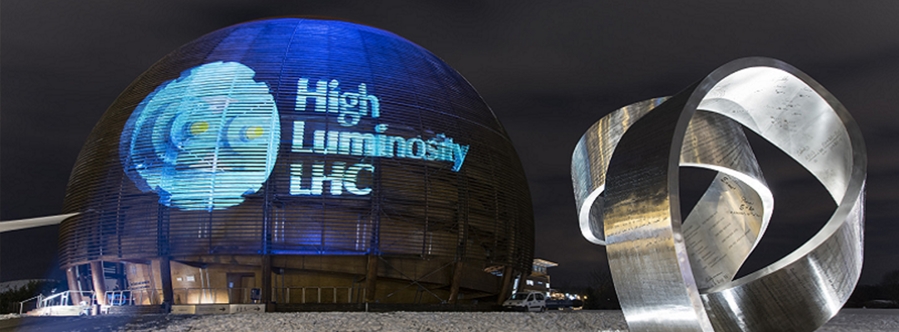Within the ORIGIN consortium, CSD ENGINEERS was entrusted with part of the major modernisation project for CERN's particle accelerator, the Large Hadron Collider (LHC). The engineering project lasted from 2016 to 2022 and was completed on time, a great success for the consortium and for CSD. The aim of the work was to open the door to experiments that have never been possible before.CSD was able to bring to bear its knowledge of underground works, the local context and its experience in managing large-scale projects.

As CERN imposed a time-limited shutdown of the LHC to carry out the main excavation work, time management was a key factor. (Photo: CERN).
Modernising to advance science
The LHC particle accelerator, built in a 27 km tunnel under the French-Swiss border near Geneva, has been in operation since 2008.
CERN has planned the High Luminosity LHC (HL-LHC) project to improve the accuracy and observational capability of rare phenomena. New equipment on the LHC will increase its luminosity, i.e., the rate at which particles collide.
A complex project of underground and surface works to be carried out from design to implementation
For the HL-LHC project, the works designed and executed by the group Origin (of which CSD ENGINEERS is a member) mainly concerned an 80 m deep shaft with a diameter of 10 m, a cavern (46 m long and 16 m in diameter) and more than 500 m of tunnels, as well as five surface technical buildings and their technical galleries.
CSD provided the consortium with its expertise in underground structures, buildings, environment, and coordination of large projects during the design, authorisation, tender and execution phases.
Tight deadlines, highly sensitive equipment
A project of this kind obviously posed a number of challenges, one of the main ones being time management. CERN set a binding deadline for the Origin consortium for a short period of downtime at the LHC to ensure that it was not exposed to vibrations that could damage the equipment or distort the experiments. This time challenge was met by Origin, and the LHC was successfully restarted.
CERN is celebrating today, 20 January 2023, the completion (on time) of the civil engineering work for the High Luminosity Large Hadron Collider (HL-LHC) project.
Europe's leading specialists in the Origin consortium
The Origin consortium, together with SETEC (France) and ROCKSOIL (Italy), was selected in 2016 by CERN following an international call for tenders to which the largest European offices responded.
Origin won the FIDIC Consultant of the year award* for the High Luminosity LHC project in 2021.
* FIDIC: International Federation of Consulting Engineers. FIDIC awards an annual prize that highlights, among other things, examples of good collaborative practice from around the world.